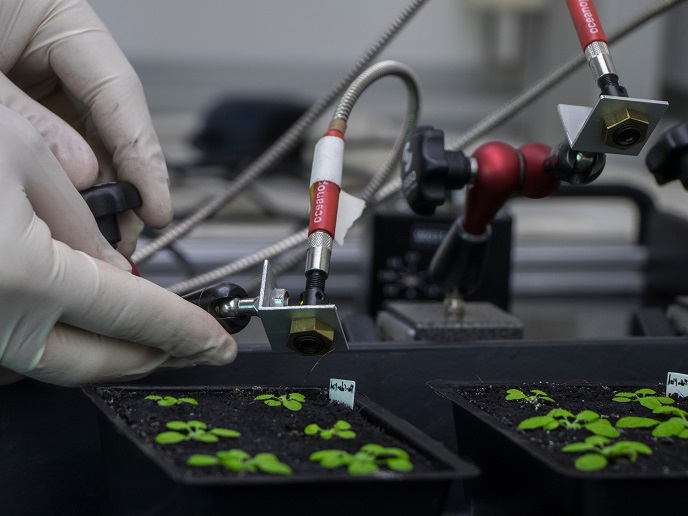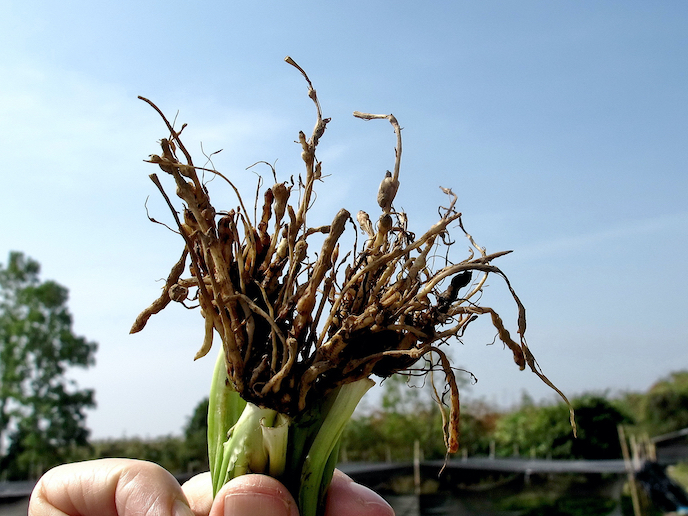How plants ‘remember’ heat stress to develop tolerance
Field crops face a range of abiotic (non-biological) stressors, including temperature extremes, drought and salinity, so plants have adapted molecular responses to gauge these stressors and adapt. The timing of a plant’s response is critical for survival, with fluctuating responses differing markedly from those developed for recurrent stress. According to Isabel Bäurle(opens in new window), project coordinator of CHROMADAPT: “research has focused mainly on the immediate stress response, neglecting the fact that in nature, stress frequently recurs.” CHROMADAPT, funded by the European Research Council(opens in new window), was especially interested in the molecular basis of ‘priming’ in plants, which enhances responses to recurrent stress. A key finding was that plants have the ability to ‘remember’ heat stress thanks to a mechanism involving transcription factors and chromatin(opens in new window) modifiers. The researchers also found this mechanism in distantly related plants, such as barley.
Heat stress memory
CHROMADAPT studied the small flowering plant Arabidopsis thaliana(opens in new window) or thale cress. As well as having similar molecular mechanisms to crop plants, it offered a wide range of pre-existing research resources. The project used forward and reverse genetics, including CRISPR(opens in new window), to identify the regulators of heat stress memory. Forward genetics(opens in new window) is a molecular technique which identifies the genes responsible for particular phenotypes or traits. Whereas, reverse genetics asks whether a specific gene has a function in the process under study. After identifying the genes responsible for heat stress memory at the molecular level, the team simulated heat stress in the lab to test whether these genes are also important for the heat tolerance of the whole plant. Thale cress seedlings were incubated at 37 degrees Celsius for one hour, to acclimatise to high temperatures – a process known as ‘priming’. This was repeated a few days later at 44 degrees Celsius. “Seedlings that had not been primed couldn’t survive this stress. But because our experimental plantlets have developed a heat stress memory, they quickly protect themselves and this protection lasts for several days,” says Bäurle. The explanation for this memory seems to lie within the chromatin.
The role of chromatin
Chromatin is a mix of DNA and proteins that constitute the chromosomes in cells. Its organisation varies and influences the expression of genes, including those responsible for a memory of heat stress. Genes induced by high temperatures, for example, produce proteins which repair and protect other proteins’ damage. CHROMADAPT found that the chromatin of these genes changes after heat induction and maintains those changes as a ‘reminder’ for recurrent stress. “When a memory of heat stress is triggered, modifications to the chromatin ensure that these genes are active for longer after the stress has subsided or are reactivated faster and stronger in response to recurrent heat stress,” Bäurle explains. The team are now testing to see what happens to plants when these genes are switched off by mutations.
Food security
With rising global temperatures forecast to increase reductions in yield(opens in new window) for all major crops, the agri-food industry globally is searching for solutions. CHROMADAPT studied barley as a model for cereal crops, hypothesising that genes relevant for heat stress memory in Arabidopsis are also relevant for barley, finding that the FORGETTER1 gene is involved in the heat response of both. The team is now using CRISPR to create candidate barley gene mutants to determine their influence on chromatin, other genes, protein formation and heat stress tolerance. “Our insights into the long-term adaptation of plants to abiotic stress open up the field for the breeding of more stress-tolerant crops as proactive mitigation against reduced food supply,” concludes Bäurle.







